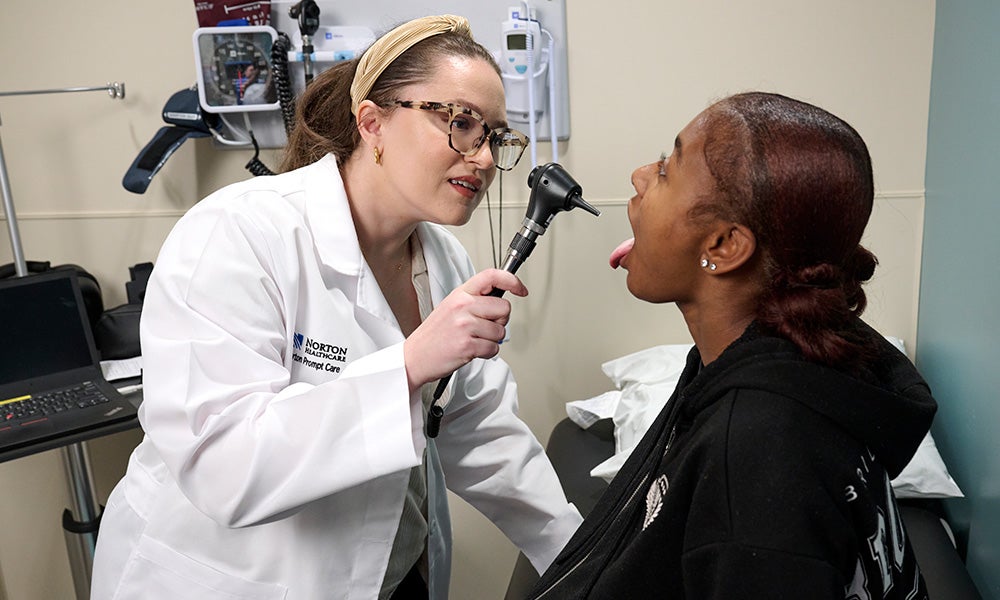Early Flu Symptoms | Louisville, Ky - Norton Healthcare

Early flu symptoms can come on suddenly, usually within a few days of exposure to the influenza virus, and can include a fever.
While fever is often thought of as a common flu symptom, not everyone who gets the flu runs a temperature.
In addition to fever, common early flu symptoms include:
- Chills
- Body aches and pains
- Headache
- Fatigue
- Dry cough
- Sore throat
- Rhinitis — stuffy, runny nose and sneezing
- Vomiting and diarrhea (more common in children than adults)
Early flu symptoms easily can be confused with a common cold, but while cold symptoms come on gradually — flu typically will affect you fast.
Flu symptoms alone aren't enough for a diagnosis, and they can overlap quite a bit with COVID-19 symptoms. The Food and Drug Administration earlier this year approved an over-the-counter home test for flu and COVID-19. It works much the same way as existing home COVID-19 tests, using a gentle swab of the nostril to collect a sample, and can give you a result in about half an hour.
The test can detect influenza A, influenza B and COVID-19.
Get urgent care for flu symptoms
See a medical provider at a Norton Prompt Care clinic or a Norton Immediate Care Center. Norton eCare offers virtual visits if you prefer to get urgent care from home.
"For many, seasonal flu can come and go without the need to see a medical provider," said Mary Rademaker, M.D., medical director of Norton Immediate Care Centers. "But it can be very serious for many others, and for those who are at risk of severe flu complications, we can prescribe an antiviral medication."
What to do if you have the flu
The flu is contagious and, in some people, can be deadly. Older people, young children and people with certain health conditions can develop severe illness. The Centers for Disease Control and Prevention recommends the following steps if you have the flu.
- Stay home and rest.
- Avoid close contact with people in your house who aren't sick.
- Drink plenty of water to prevent dehydration.
- Use over-the-counter medications to treat fever, cough and other symptoms.
- Call your doctor if you develop severe symptoms, including a high fever, are pregnant or have a condition that puts you at higher risk of a complication, like asthma. Your health care provider may prescribe an antiviral drug.
Related: When does the flu warrant emergency care?
If you have a fever, you can still spread the flu virus for about 24 hours after your temperature comes down. Stay home for another day after your fever is gone without taking any fever-reducing medicine such as ibuprofen (Advil or Motrin) or acetaminophen (Tylenol).
If you haven't gotten the flu vaccine, it's likely not too late to protect yourself and those around you. Flu season runs from fall through spring, and the flu shot takes effect after about two weeks. Even if it's early March, you can still benefit from the vaccine's protection.
The vaccine doesn't always prevent you from getting sick from the flu virus, but it is very effective at reducing your symptoms or preventing you from developing flu complications if you do catch it.
Comments
Post a Comment